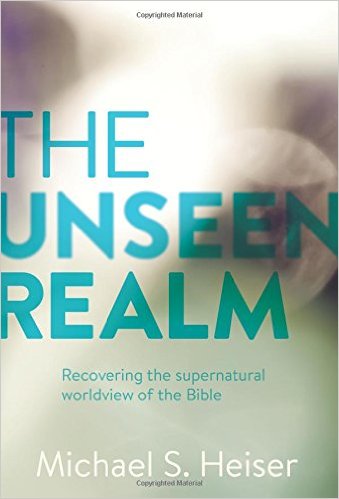BEN: Let’s address a difficult issue. You are arguing, rightly in my view, that we must understand the OT in light of its ANE contexts. Fair enough. But what happens when we realize that the OT writers are borrowing ideas and terms from mythological literature in these other cultures. Are we supposed to simply embrace the mythology as if it was reality? For example, as you point out, the ancients thought stars were heavenly beings, the heavenly host, not merely pieces of inanimate matter. We moderns in the scientific era know better. The ancient astrologers were wrong. How does one critically sift the use of ANE concepts in the OT without throwing out the baby with the bathwater so to speak? By this I mean that you want to retain the notion that there are actually ‘elohim’ out there, things we would call angels and demons today. But how does one do that without embracing that whole ancient cosmology?
MIKE: On one level, we only need to embrace the theology of the biblical writers. When they use a text, we need to discern how they are using it and why. That will tell us where they are going theologically. The example you raise about the stars not being divine beings is something we know from general revelation (science). By definition the biblical writers aren’t making scientific claims—they couldn’t since they didn’t have the tools of science. And God knew that. It was God who chose the writers and providentially prepared them to accomplish the task he assigned to them. God knew he wasn’t getting scientists or anyone who could make accurate assessment of the natural world. Once we grasp that pretty obvious fact, we need to ask ourselves whether it makes any sense to have the biblical writers making scientific truth claims in what they wrote. By definition, that’s an absurdity. And so if the Bible isn’t making scientific truth claims, we shouldn’t pretend it does and then get worried when something a writer says or believed about the natural world conflicts with real science. In other words, we don’t need to accept what the writers believed about the natural world because God didn’t ask them to make observations about it that were impossible for them to make and then present that as truth. God knew it wasn’t true, and so the Spirit wouldn’t have them present it as truth. God had his own agenda when he chose humans to produce this thing we call the Bible, and it wasn’t science lessons. His agenda items transcend science, no matter how much scientific knowledge improves—things like who he was, who we are, that we got here by his power, that he is our rightful sovereign, that he loves us, that he didn’t abandon or destroy us when we rebelled, etc. I often bring this up to folks who want to dismiss the Bible on the basis of perceived conflicts with science. I ask them why they judge the Bible negatively for not being what it wasn’t intended to be. Are they angry at their dog for not being a cat? Their grounding assumption makes no sense at all. They usually get the point.
On the other hand, what the biblical writers say about the spiritual world is beyond the tools of science. We cannot coherently use science, for example, to tell us how the heavenly host / council and God relate to each other. Science only gives us truth that the tools of science can measure or ascertain. I’d say we need to embrace what God tells us through his human agents, the writers, in the spiritual realm. The tools of science are inadequate for that. God knew that knowledge of the spiritual realm was beyond the writers and would never be gained through human scientific knowledge over time. So that information must have a divine source, and its evaluation must come through the tools of logical coherence. And I’d say the belief in God and a spiritual world where order exists has stood up pretty well when tested for philosophical and logical coherence.
We also need to guard against assuming that the means of communicating such things has an exact correspondence to literal reality. On one hand, obedience to biblical theology requires that we embrace ideas like God, his divine council, and the existence of a spiritual world, but God was content to let human writers use metaphors and symbolic language. Heaven and hell, for example, are described in geographical or directional terms, but they don’t have literal latitude and longitude. God could have cared less if embodied writers had to use such language—it served the purpose well, to affirm a spiritual realm and an afterlife. It’s the same with council language. To convey the heavenly (spiritual) nature of elohim God chose people who would use celestial language to describe such beings. Why? Because that conveyed they were not by nature terrestrial and earthly. They were from places that humans could neither reach nor live. If God chose people today to describe the spiritual world we’d use different metaphors to communicate the same ideas. But the metaphor and what it conveys don’t overlap 1:1.














